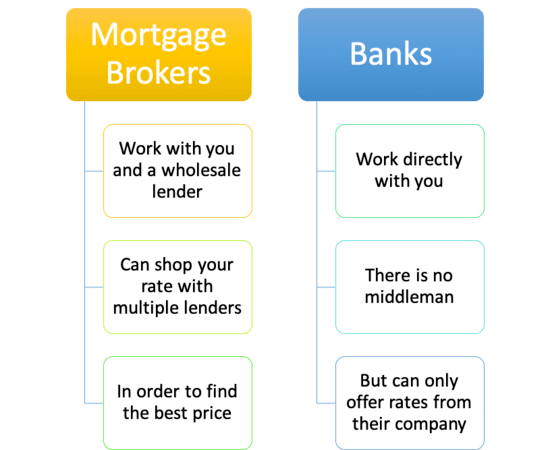Jumbo Loan Rates: What You Need to Know Prior To Using
Jumbo Loan Rates: What You Need to Know Prior To Using
Blog Article
Understanding What a Jumbo Lending Entails and How It Differs From Conventional Financings
Navigating the complexities of jumbo loans exposes a financing choice tailored for those venturing into high-value real estate, typically going beyond the limitations set by the Federal Housing Finance Firm. The considerable risk associated with big car loans demands a lot more strict certification demands, consisting of greater credit scores and considerable down settlements.
Definition of Jumbo Finances
Jumbo car loans are a type of mortgage that surpass the adjusting funding restrictions established by the Federal Housing Financing Company (FHFA) These finances satisfy debtors who need to finance residential properties that are more pricey than what traditional loan restrictions enable. The FHFA develops annual conforming funding limitations, and any type of funding surpassing these limits is categorized as a big financing.
Usually, big loans are used in high-cost actual estate markets where home prices significantly surpass national standards, such as in cities or deluxe housing fields. As these finances are not qualified for purchase by Fannie Mae or Freddie Mac, they carry integral threats for lending institutions due to their larger size and non-conformity (jumbo loan). Lenders frequently impose extra rigid qualification criteria for big lendings than standard adapting loans.
Consumers seeking big finances should typically demonstrate a solid financial account, consisting of a greater credit report, robust earnings verification, and significant deposit, frequently 20% or even more. Furthermore, loan providers may call for a lot more substantial paperwork to assess the consumer's capacity to manage larger regular monthly repayments. Comprehending the details characteristics of big car loans is crucial for prospective debtors browsing this section of the home mortgage market.
Conventional Loans Summary
While big loans accommodate high-value building financing, standard fundings stand for the more common home mortgage choice in the housing market. These loans are not guaranteed or assured by any government entity, such as the Federal Housing Administration (FHA) or the Division of Veterans Matters (VA) Rather, they are backed by exclusive lending institutions and stick to guidelines established by government-sponsored enterprises (GSEs) like Fannie Mae and Freddie Mac.
Standard loans are generally offered with dealt with or adjustable rates of interest and vary in regards to duration, typically spanning 15 to thirty years. Debtors usually like standard loans for their foreseeable month-to-month repayments, which can promote long-term economic preparation. Furthermore, they are available for key homes, 2nd homes, and financial investment homes, supplying flexibility to meet varied consumer requirements.

Trick Distinctions Between Fundings
At the leading edge of this decision-making procedure are standard finances and big car loans, each possessing distinctive qualities and offering different customer requirements. Jumbo fundings exceed the adjusting funding restrictions established by the Federal Housing Financing Agency (FHFA), which vary by area.

Additionally, the down settlement needs can differ significantly. Big car loans generally need bigger deposits, often surpassing 20%, to alleviate risk. Traditional fundings, on the other hand, might permit lower down payments, with some programs accepting just 3% for certified buyers.
Certification Requirements
Protecting a jumbo car loan involves satisfying much more stringent credentials demands contrasted to conventional lendings, reflecting the increased threat to loan providers. These lendings, which surpass the adapting lending limits set by the Federal Housing Money Company (FHFA), are not qualified for acquisition by Freddie Mac or Fannie Mae, therefore revealing lending institutions to greater economic threat - jumbo loan. Because of this, customers need to demonstrate a high creditworthiness and monetary stability
A robust credit report, typically 700 or higher, is vital for approval. Lenders additionally expect a lower debt-to-income (DTI) proportion, frequently not surpassing 43%, guaranteeing that customers can handle substantial month-to-month payments along with various other monetary responsibilities. A substantial money get is typically called for, commonly amounting to 6 months of mortgage repayments, to guarantee lenders of the debtor's economic strength.
Deposit expectations are likewise raised, regularly beginning at 20% or more of the residential or commercial property's value. While this is a this hyperlink guard for lending institutions, it necessitates considerable in advance resources from customers. Furthermore, proof of consistent, enough income is vital, usually verified with tax obligation returns, W-2s, and recent pay stubs. Self-employed individuals might need to supply more paperwork, such as revenue and loss statements, to substantiate their income security.
Choosing the Right Funding
When choosing the most suitable finance alternative,Navigating the intricacy of big financings calls for cautious consideration. With the broader variety of choices available to those seeking jumbo finances, the decision-making procedure must involve an extensive evaluation of one's economic account and lasting goals. Unlike conventional lendings, big finances commonly come with more stringent requirements and differed rate of interest, which demand complete research and a clear understanding of one's monetary standing.
When picking between various big finance offerings, it is necessary to assess the financing terms, including interest rates, settlement timetables, and associated fees. Debtors need to contrast the rates offered by various lending institutions to guarantee they secure the most desirable terms. Furthermore, understanding the ramifications of repaired versus variable-rate mortgages (ARMs) is essential, as each choice provides unique advantages and threats depending on market conditions and personal monetary techniques.
Engaging with a financial advisor or mortgage broker can supply beneficial understandings customized to private scenarios. These professionals can help in browsing the nuances of big lendings, guaranteeing that borrowers are educated and geared up to choose a financing that lines up with their economic goals, ultimately promoting a smoother home-buying procedure.
Verdict
In summary, jumbo loans serve as a monetary instrument for getting high-value buildings, requiring stringent eligibility needs and higher rate of interest as a result of the elevated danger for lending institutions. Unlike conventional financings, which adapt FHFA restrictions and might receive support from Fannie Mae or Freddie Mac, jumbo fundings need a minimal credit report of 700 and significant down settlements. Understanding these distinctions is important for debtors in high-cost real estate markets to determine the most ideal finance option for their needs.
The FHFA develops yearly adjusting lending limits, and any finance surpassing these thresholds is identified as a big financing.
At the leading edge of this decision-making process are traditional car loans and jumbo lendings, each possessing distinctive attributes and offering different debtor needs.Safeguarding a jumbo lending includes meeting more stringent qualification needs contrasted to traditional car loans, showing the increased danger to lending institutions. Unlike conventional car loans, big lendings frequently come with stricter requirements and differed passion rates, which require complete research study and a clear understanding of one's financial standing.
Unlike standard car loans, which adhere to FHFA restrictions and may receive backing from Fannie Mae or Freddie Mac, jumbo financings require a minimal credit report rating of 700 and significant down repayments.
Report this page